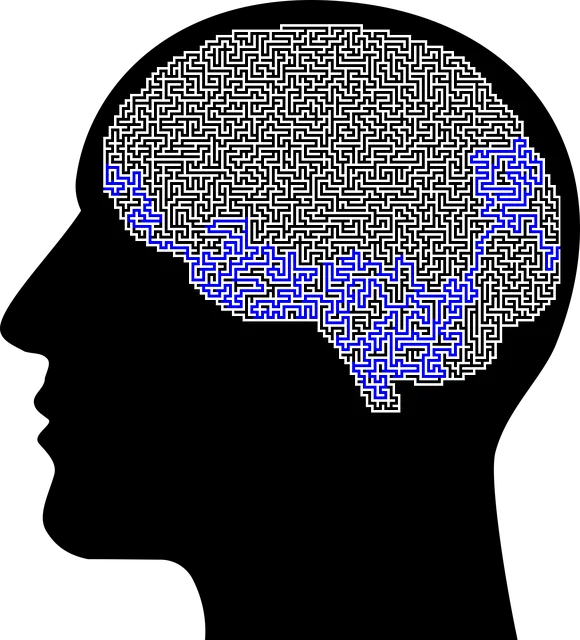In today's fast-paced world, prioritizing mental wellness is vital. Kaiser Permanente behavioral health services in Arvada offer comprehensive self-assessment tools integrating mindfulness meditation and Empathy Building Strategies for holistic emotional well-being. These tools, backed by expert validation and cultural competency training, empower individuals to proactively manage stress, anxiety, and depression through practical strategies, setting a new industry standard with their innovative approach.
Mental wellness self-assessment tools play a crucial role in empowering individuals to take charge of their behavioral health. With increasing demand for accessible and accurate assessments, this article explores development strategies, drawing on the successful integration of self-assessment at Kaiser Permanente Arvada. We’ll dissect key components, implementation best practices, and evaluation methods to ensure tool accuracy and user engagement within behavioral health services, inspired by Kaiser Permanente’s innovative approach in Arvada.
- Understanding the Need for Self-Assessment Tools in Behavioral Health
- Kaiser Permanente Arvada: A Model for Integrating Self-Assessment
- Key Components of an Effective Mental Wellness Self-Assessment Tool
- Implementation and Evaluation: Ensuring Accuracy and User Engagement
Understanding the Need for Self-Assessment Tools in Behavioral Health

In today’s fast-paced world, prioritizing mental wellness is more critical than ever. Tools for self-assessment play a pivotal role in helping individuals take charge of their behavioral health, especially when coupled with the comprehensive services offered by Kaiser Permanente behavioral health services Arvada. These tools empower people to gain valuable insights into their emotional well-being, enabling them to identify areas needing improvement. By promoting self-awareness, they facilitate proactive measures for stress management and fostering better mental resilience.
The integration of mindfulness meditation as a core component in these self-assessment tools has proven effective in enhancing self-esteem improvement. In the context of Kaiser Permanente’s behavioral health services Arvada, such tools serve as valuable resources, allowing individuals to navigate their emotional landscapes effectively. They encourage users to embrace a more holistic approach to wellness by offering practical strategies for managing everyday stressors, thereby contributing to overall well-being.
Kaiser Permanente Arvada: A Model for Integrating Self-Assessment

Kaiser Permanente Arvada serves as a compelling model for integrating self-assessment tools within behavioral health services. This facility has pioneered innovative approaches to mental wellness by combining comprehensive care with patient-centric evaluation methods. By offering Empathy Building Strategies and incorporating Mindfulness Meditation practices, Kaiser Permanente Arvada enhances the overall emotional regulation of its clientele.
Their approach involves regular self-assessments that allow individuals to track their progress and identify areas needing improvement. This proactive strategy empowers patients to take charge of their mental wellness journey. Through such integrated initiatives, Kaiser Permanente Arvada sets a benchmark for enhancing access to quality behavioral health services, making mental wellness assessment more accessible and personalized.
Key Components of an Effective Mental Wellness Self-Assessment Tool

An effective mental wellness self-assessment tool should incorporate several key components to ensure it provides accurate and actionable insights. Firstly, it must be comprehensive, covering various aspects of mental health such as anxiety, depression, stress levels, and emotional well-being. Tools like those developed by Kaiser Permanente behavioral health services in Arvada emphasize this inclusivity. Additionally, the assessment should be validated by experts in the field to ensure its reliability and validity, ensuring users receive accurate feedback based on scientific criteria.
Cultural competency is another vital component, especially when catering to diverse populations. Incorporating this aspect, such as through Healthcare Provider Cultural Competency Training, ensures that the self-assessment tool resonates with individuals from different backgrounds and beliefs, fostering trust and encouraging honest self-reflection. Moreover, including sections dedicated to Inner Strength Development and Stress Management Workshops within the tool can empower users to actively manage their mental wellness, complementing the assessment results with practical strategies for improvement.
Implementation and Evaluation: Ensuring Accuracy and User Engagement

Implementing a mental wellness self-assessment tool requires careful planning and evaluation to ensure its accuracy and user engagement. At Kaiser Permanente behavioral health services Arvada, we understand that effective assessment tools must not only measure symptoms but also foster emotional healing processes and compassion cultivation practices. By integrating Mind Over Matter principles, our assessments aim to create a supportive environment, encouraging honest self-reflection without inducing anxiety or fear.
Through rigorous testing and user feedback, we continually refine these tools to enhance their reliability and validity. Engaging users in the evaluation process is key to identifying potential gaps or areas for improvement, ensuring that the final product aligns with their needs and experiences. This iterative approach allows us to develop comprehensive self-assessment tools that not only accurately gauge mental wellness but also promote it, setting a new standard in the industry alongside our innovative Arvada behavioral health services.
Mental wellness self-assessment tools play a pivotal role in enhancing access to care and empowering individuals to take charge of their behavioral health. As demonstrated by Kaiser Permanente’s innovative approach in Arvada, integrating these tools into routine practice can significantly improve patient engagement and outcomes. By focusing on key components such as simplicity, validity, and cultural sensitivity, we can develop effective assessments that accurately capture mental wellness states. Rigorous implementation and evaluation ensure not only the tool’s accuracy but also user satisfaction, ultimately fostering a more holistic and accessible behavioral health care system, especially within the framework of Kaiser Permanente’s comprehensive services in Arvada.






